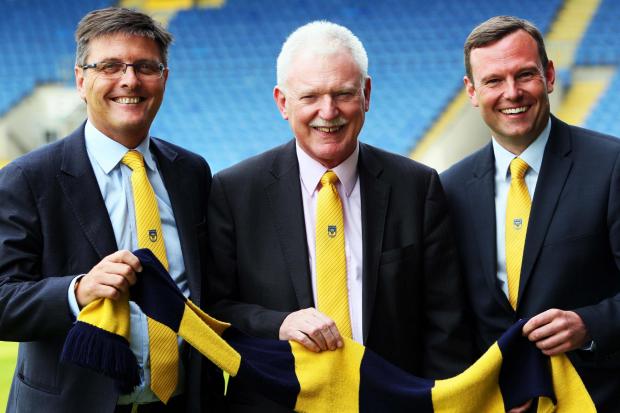Wycombe Wanderers 2 Oxford United 1
There was the usual guff the game's validity as a derby. Wycombe and Oxford are close to each other and there was a scramble for tickets - the first time I’ve missed out on a game I wanted to see since Leeds in 1994. The game was clearly keenly anticipated.
One person dismissed Wycombe as ‘irrelevant’; the football version of Marie-Anntoinette’s ‘Let them eat cake.’ It all started to sound a little bit like Swindon fans do when they play us, claiming unconvincingly, that Bristol City are their real rivals. There was talk of that they were ‘tinpot’, all of which ignores the fact that Wycombe have spent more time than us above League 2 over the last 20 years.
Recent victories over Wycombe have had a backdrop of angst about them - last year we were threatened with relegation and they were flying high, the year before it was the last knockings of Chris Wilder’s tenure. There was a feeling of intensity, this time there was a degree of complacency.
Football isn’t like Christmas it doesn’t deliver goodwill to all men. Perhaps inevitably, for the second time this week we were League two’ed by a team who were strong and direct and good at set pieces. It might not be the most aesthetically pleasing style, but it does work.
We’re approaching the middle point of the season, we’ve played everyone, some think that the Wycombe result was the beginning of one of those characteristic Oxford United slumps. It is still too early to tell, but we won’t help ourselves by changing the way we, as fans approach games.
When the season starts you don’t really know whether you’re facing a good team or a bad one. Later in the season it’s fairly clear what type of team you’re facing. One of the things about Wycombe is we apparently know what we’re facing - a tinpot, irrelevant club - and that’s where the trouble starts because there was and expectation of victory.
We head into Christmas in third, it’s a good position from my point of view, but we need to be aware that the job is not even half complete. If this does turn out to be the start of the slump we’ll be asking why we can’t play like we did at the start of the season, that's a reasonable challenge, but we also need to support like we did at the start of the season.
Any other business - Eales leaves
It seems logical that this wasn’t a planned change given that it has happened mid-season with the club apparently on the up.
Ashton was on the radio a couple of hours after the announcement, which implies that either he has been paid off so handsomely he's prepared to talk Eales and the club up, or he has genuinely been discussing this for a while. I suspect it’s the latter; why would Eales risk putting Ashton on the radio when it's easier to put a statement on the club’s website and wait to the furore to blow over?
What is Ashton’s legacy? It’s difficult to tell at the moment, as good as our recent form has been, we were awful last year. It might be reasonably argued that he was prepared to act as a spokesperson for the club even when things were a mess and that any work he did put in place in the background is bearing fruit this season. I suspect it’s one of those things where we won’t know his true value until he’s gone; we probably won’t really know for a few months.
What’s impact will the change have on the club? It seems that the main role of a chief executive is to temper the worst excesses of your owner. Kelvin Thomas’ enthusiasm and positive nature counter-balanced Ian Lenagan’s natural conservatism. When Thomas left, the club was fully exposed to Lenagan’s cautiousness (which, it should be noted made him a very rich man and turned the club on its head, so it was not at all bad).
Eales, by everyone’s assertion, is a infectiously positive person. That has to be good for the club in the short term. He is clearly a successful man, but is it because he’s a good businessman or because he's a gambler who has won big just enough times to make him rich? A gambler in a football club is not necessarily a good thing in the long term because it doesn’t take much to plunge a club into crisis.
There is another scenario worth considering; with Eales’ positivity, Lenagan’s natural conservatism and Firoz Kassam, effectively a still key shareholder in the club, it could be that Ashton’s presence muddies the water. If Eales can align the ambitions of all three men, then it could actually be the making of the club.


No comments:
Post a Comment